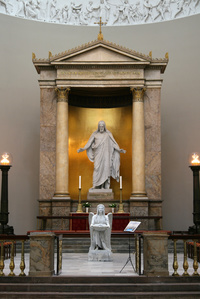#TwoUpbuildingDiscourses1843
Two Upbuilding Discourses, 1843
Soren Kierkegaard published Two Upbuilding Discourses three months after the publication of his big book, Either/Or, which ended without a conclusion to the argument between A, the aesthete and B, the ethicist, as to which is the best way to live
Read More..
by Søren Kierkegaard
Ratings
Likes
Reviews
Popularity
Ranks
This #hashtag is not ranked yet.






